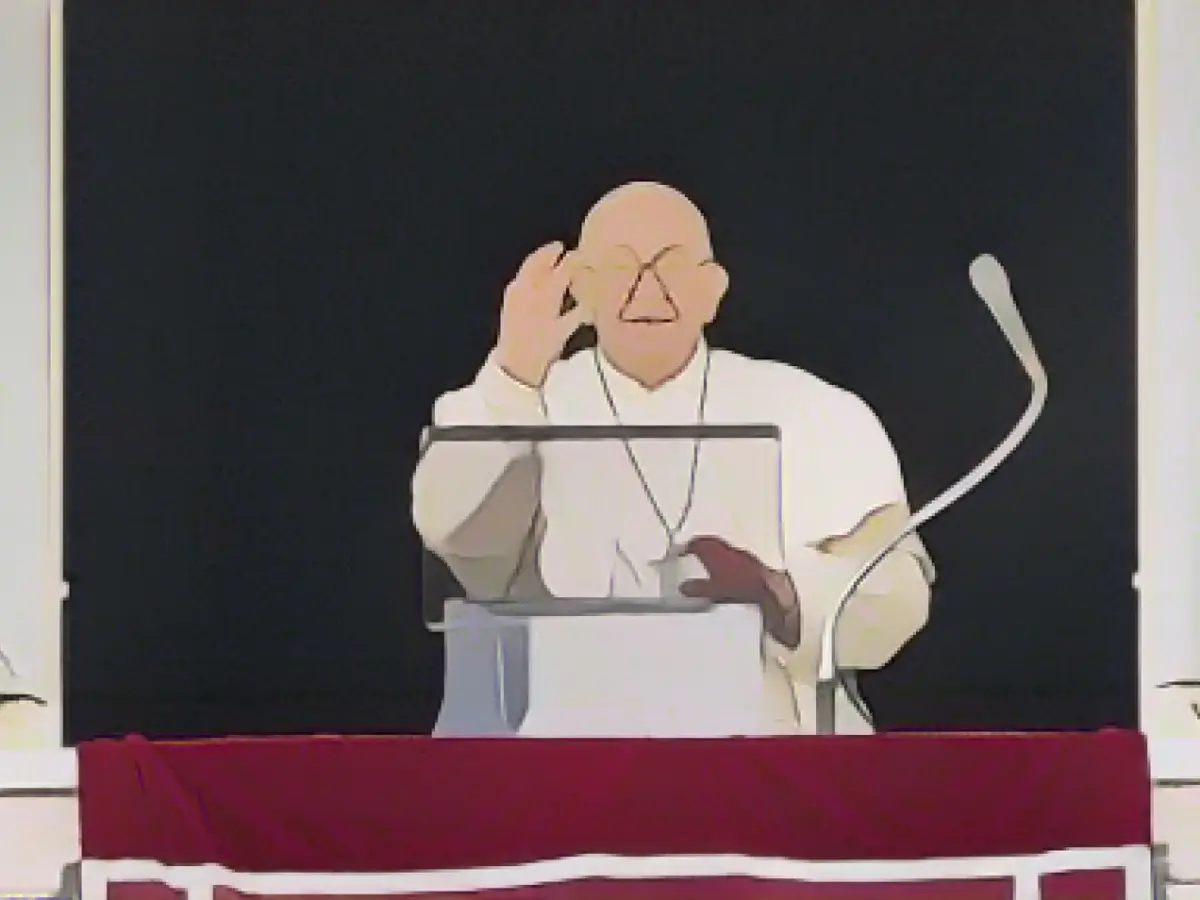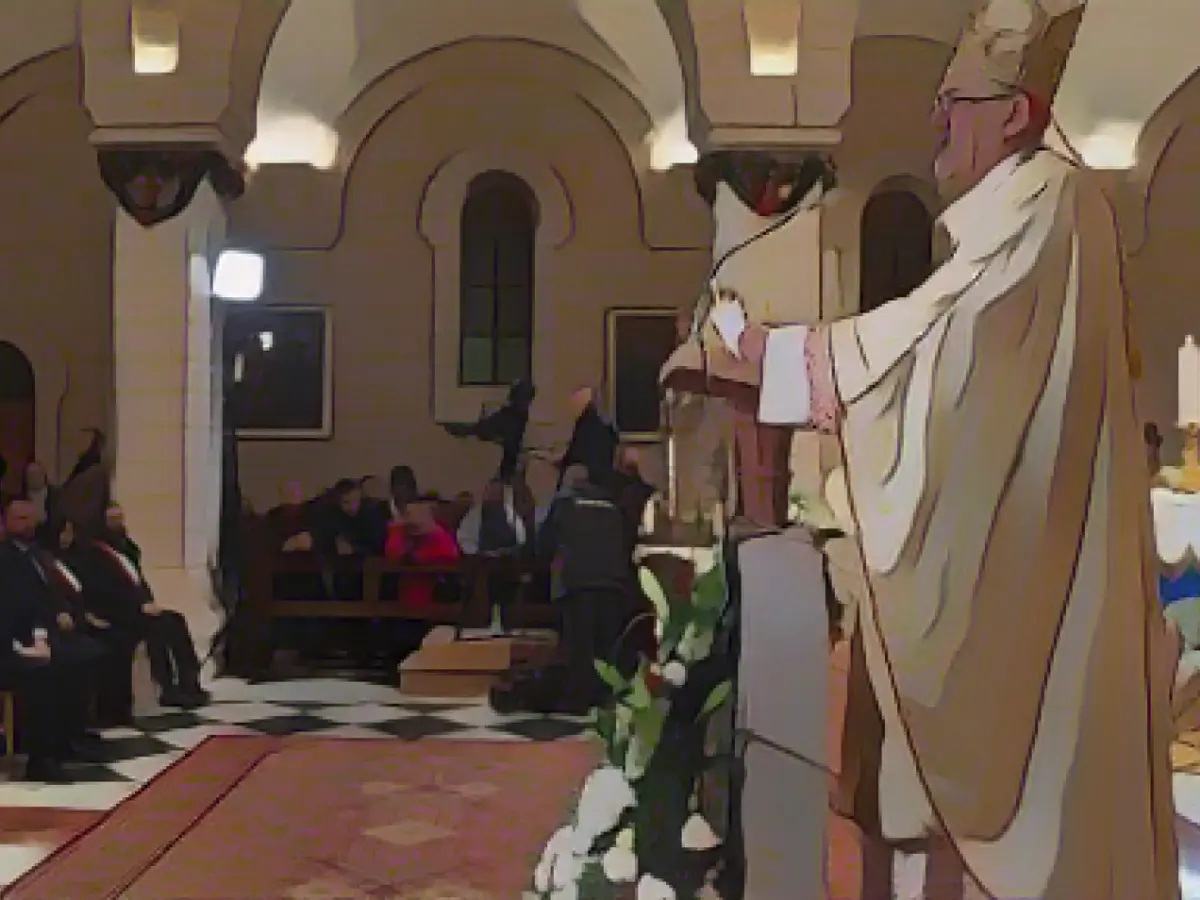Globally, Christianity is Surprisingly Thriving, Suddenly Swelling in Numbers
While Christianity may be facing a crisis in Germany, the international scene is witnessing a remarkable surge in the number of believers. For the very first time, the world is now home to over 2.6 billion Christians. At Christmas, the Catholic Church calls for prayers for persecuted Christians and even dares to implement long-awaited liberalizations.
Although the number of people leaving the church in Germany is still high, the situation is significantly different on the global stage. In 2023, the number of Christians worldwide surpassed the 2.6 billion mark for the first time, signaling a 1.18% annual growth rate - that's roughly 30 million new believers each year! This translates to a calculated 82,000 new, devoted Christians every day. Although Islam is currently growing a little faster at 1.87%, the number of Muslims has also surpassed 2 billion, making it the second-largest faith group after Christianity. With a growth rate of 1.2%, Hindus represent the third-largest faith community, boasting 1.09 billion members.

The aforementioned statistics are extracted from the "Study of Global Christianity" conducted by religious researchers in Boston. They align with other studies, such as those provided by the PEW Research Center and individual Christian churches' data. For instance, the Catholic Church reports around 1.38 billion Catholics, with significant increases in Africa and America. What's more, Christianity is also growing unexpectedly in countries like Japan and China; in South Korea, it has even become the largest organized religion.
The vast majority of Christians are residing in Africa
In fact, according to the data, the growth rate of the Catholic Church is only 0.93%, while free churches, such as evangelicals, are experiencing a remarkable increase of 1.79%. Meanwhile, Buddhists are growing at a much slower pace at 0.77%, resulting in a current Buddhist population of 535 million. The Jewish community, on the other hand, is growing fairly sluggishly (0.7%), amounting to a mere 15 million people, representing a far smaller proportion of the world's population.
Christianity is strongest in the southern hemisphere, marking a drastic change from a century ago, when Christians vastly outnumbered those living in the rest of the world. In 1923, there were twice as many Christians in Europe compared to the rest of the world. However, this has now changed, with more Christians (566 million) living in Europe than in Latin America (611 million) and Africa (718 million). Asia is fast growing in numbers, with over 400 million Christians for the first time.
The persecution of Christians is on the rise worldwide
Paradoxically, while Christianity is flourishing globally, persecution against the faithful is also intensifying. In many countries, including the Arab world, India, and North Korea, Christians are being threatened for their faith, often leading to their brutal persecution and execution. German bishops, therefore, are urging for prayers for persecuted and oppressed Christians on December 26, symbolizing the second day of Christmas, and demonstrating their commitment to religious freedom for all. The day of prayer highlights the connection between the nativity scene and the cross: "The crib and the cross are carved from the same wood," says Bishop Bertram Meier, Chairman of the Commission for the Universal Church. Pope Francis echoes these sentiments, emphasizing that "the martyrs are alive now, in numerous countries."
Pope Francis also takes issues with Israel's shelling of the Catholic parish in Gaza, highlighting the Palestinian women shot by soldiers and demanding protection for the vulnerable, including disabled children cared for by the Mother Teresa Sisters in the besieged city.
On Monday, the Pope paved the way for the blessing of same-sex and remarried couples within the Catholic Church, marking a significant step in liberalization. The Pope has also set his sights on Rome's Basilica of Santa Maria Maggiore for his burial after his death, preferring to be laid to rest there rather than in the Vatican as is traditionally the case.
Sources:
- Religious researchers from Boston
- PEW Research Center
- Catholic churches' individual data
- The German Bishops' Conference (DBK) in Bonn








